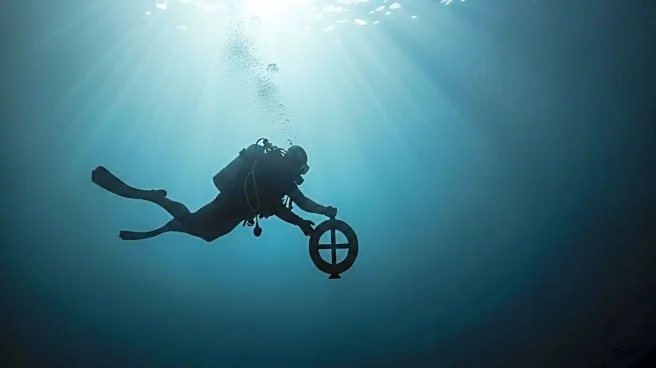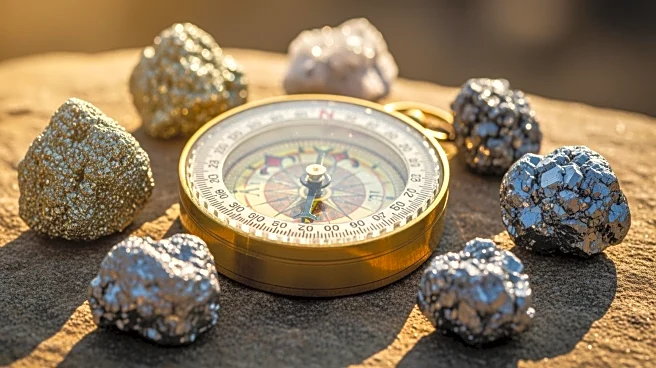What's Happening?
Divers have discovered human remains in a flooded coal mine in Ube, Yamaguchi Prefecture, Japan, where a ceiling collapse during World War II killed 183 miners. The remains, including a skull and several bones, were confirmed as human by the Ube Police Station. The mine, sealed shortly after the accident in 1942, has been the focus of a citizens group aiming to recover the remains. Despite calls from bereaved families and the group for government assistance, Japan has maintained a stance against involvement, citing difficulties in providing support.
Why It's Important?
The discovery of human remains in the Chosei coal mine highlights ongoing efforts to address historical injustices and recover the remains of Korean laborers who perished during the war. The reluctance of the Japanese government to assist in the recovery process underscores complex historical and diplomatic issues between Japan and South Korea. The situation raises questions about the responsibilities of governments in addressing wartime legacies and providing closure to affected families.
What's Next?
The citizens group continues to urge the Japanese government to support the recovery efforts, emphasizing the moral obligation to return the remains to their homeland. The discovery may increase pressure on the government to reconsider its stance, although safety concerns remain a significant barrier. The group plans to continue its underwater investigations, funded through crowdfunding, while seeking broader support for their cause.
Beyond the Headlines
The case reflects broader themes of historical memory and reconciliation, particularly in the context of Japan-South Korea relations. The recovery of remains could serve as a catalyst for dialogue on wartime labor issues and contribute to healing historical wounds. The ethical implications of government inaction in such cases may also prompt discussions on international humanitarian responsibilities.









